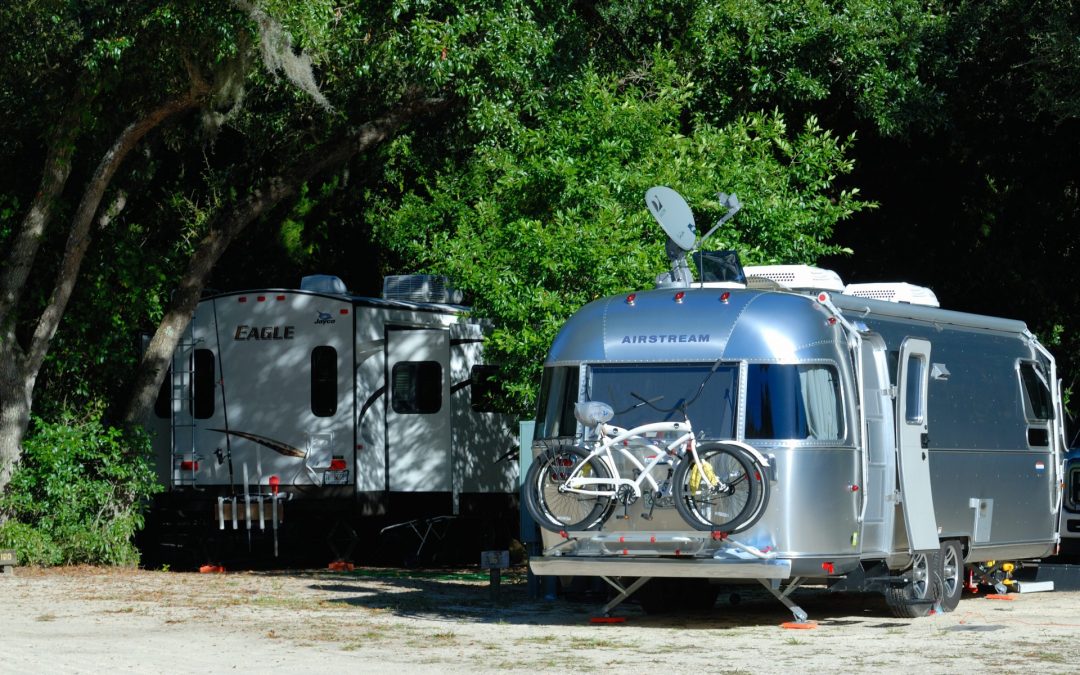Boondocking is an exciting way to experience nature without sacrificing the comforts of home. However, being off the grid means you may not have access to reliable cellular or Wi-Fi connections. Satellite internet is the perfect solution for staying connected while boondocking. In this article, we will provide you with a beginner’s guide to boondocking with satellite internet.
What is Satellite Internet?
Satellite internet is a type of internet connection that uses a satellite in orbit to transmit and receive data from your computer or mobile device. This allows you to access the internet from anywhere, including rural and remote areas where traditional internet connections are not available.
How Does Satellite Internet Work?
To access satellite internet, you need a satellite dish and a modem that connects to the dish. The dish communicates with a satellite in orbit, which then sends and receives data to and from the modem. The modem then connects to your computer or mobile device, allowing you to access the internet.
Benefits of Using Satellite Internet for Boondocking
Access to the Internet Anywhere
With satellite internet, you can access the internet from anywhere, including remote areas where traditional internet connections are not available. This means you can stay connected to work, family, and friends even while camping in the wilderness.
Fast and Reliable Internet Connection
Satellite internet provides a fast and reliable internet connection, which is crucial for working remotely or streaming entertainment. You can enjoy high-speed internet without interruptions, buffering, or lag.
No Need for Cellular Coverage
Satellite internet does not require cellular coverage, which can be unreliable or nonexistent in remote areas. You can access the internet directly from the satellite, ensuring a stable and consistent connection.
Security and Privacy
Satellite internet provides a secure and private internet connection. Unlike public Wi-Fi, which can be vulnerable to hacking and cyber attacks, satellite internet encrypts your data and protects your privacy.
Choosing a Satellite Internet Provider
When choosing a satellite internet provider, consider the following factors:
Coverage Area
Make sure the provider offers coverage in the area where you plan to go boondocking. Satellite internet coverage varies depending on the provider and the location.
Data Allowance
Check the provider’s data allowance and speed, as some plans may have limitations or restrictions. Choose a plan that fits your data usage needs, and be aware of any overage fees or speed reductions.
Cost
Compare the cost of different plans and providers, as satellite internet can be expensive. Look for special offers or discounts, and consider the overall value of the plan.
Equipment
Consider the cost and compatibility of the equipment, such as the satellite dish and modem. Some providers offer equipment rental or leasing, while others require you to purchase the equipment outright.
Starlink and Boondocking
One of the most exciting developments in satellite internet technology is Starlink, a satellite internet service launched by SpaceX. Starlink promises high-speed, low-latency internet anywhere in the world, including remote areas. Its constellation of satellites is designed to provide fast and reliable internet connectivity to people who live in rural or remote areas.
While Starlink is still in its early stages of development, it has already begun offering beta testing in certain areas. As the technology continues to improve and expand, it may become a game-changer for boondockers who want to stay connected to the internet while enjoying the wilderness.
Resources
- https://www.recreation.gov/articles/satellite-internet-for-boondocking This Recreation.gov article provides an in-depth guide to using satellite internet for boondocking, including tips on choosing a provider, setting up equipment, and understanding data allowances.
- https://www.rvtravel.com/satellite-internet-for-rvers/ RV Travel’s comprehensive guide to satellite internet for RVers explores the various options, providers, and equipment needed for a reliable connection while boondocking or traveling.
- https://www.starlink.com/ The official Starlink website by SpaceX offers information on their innovative satellite internet service, including coverage, pricing, and updates on the technology’s development.
- https://www.outsideonline.com/2418557/boondocking-guide Outside Online’s guide to boondocking provides valuable information on the ins and outs of off-grid camping, including tips on finding the perfect location, safety, and how to stay connected with satellite internet.
Conclusion
Boondocking with satellite internet is a great way to stay connected to the world while enjoying the beauty of nature. With a fast and reliable internet connection, you can work remotely, stream entertainment, and stay connected to family and friends. When choosing a satellite internet provider, consider the coverage area, data allowance, cost, and equipment compatibility. So, pack your bags, grab your satellite internet, and head out into the wilderness for an adventure of a lifetime!
FAQs
1. Can I use satellite internet for gaming?
Yes, satellite internet can be used for gaming, but it may not be suitable for fast-paced online games that require low latency.
2. Can I use my existing satellite dish for satellite internet?
No, you need a specialized satellite dish and modem that are compatible with your satellite internet provider.
3. Is satellite internet affected by weather?
Satellite internet can be affected by extreme weather conditions such as heavy rain or snow, which can interfere with the satellite signal. However, modern satellite technology has significantly improved and is less susceptible to weather-related interruptions.
4. How fast is satellite internet?
Satellite internet speeds vary depending on the provider and the plan you choose. Most providers offer speeds ranging from 10 to 100 Mbps, but some plans may have speed restrictions or limitations.
5. How much does satellite internet cost?
Satellite internet can be expensive compared to traditional internet connections, with plans ranging from $50 to $150 per month. In addition to the monthly fee, you may also need to pay for equipment, installation, and activation fees.
In conclusion, boondocking with satellite internet can be an excellent way to enjoy the great outdoors without sacrificing connectivity. By understanding how satellite internet works and choosing the right provider, you can stay connected and make the most out of your boondocking adventure.
Featured Image by Paul Brennan, CC0 Public Domain, via publicdomainpictures.net

